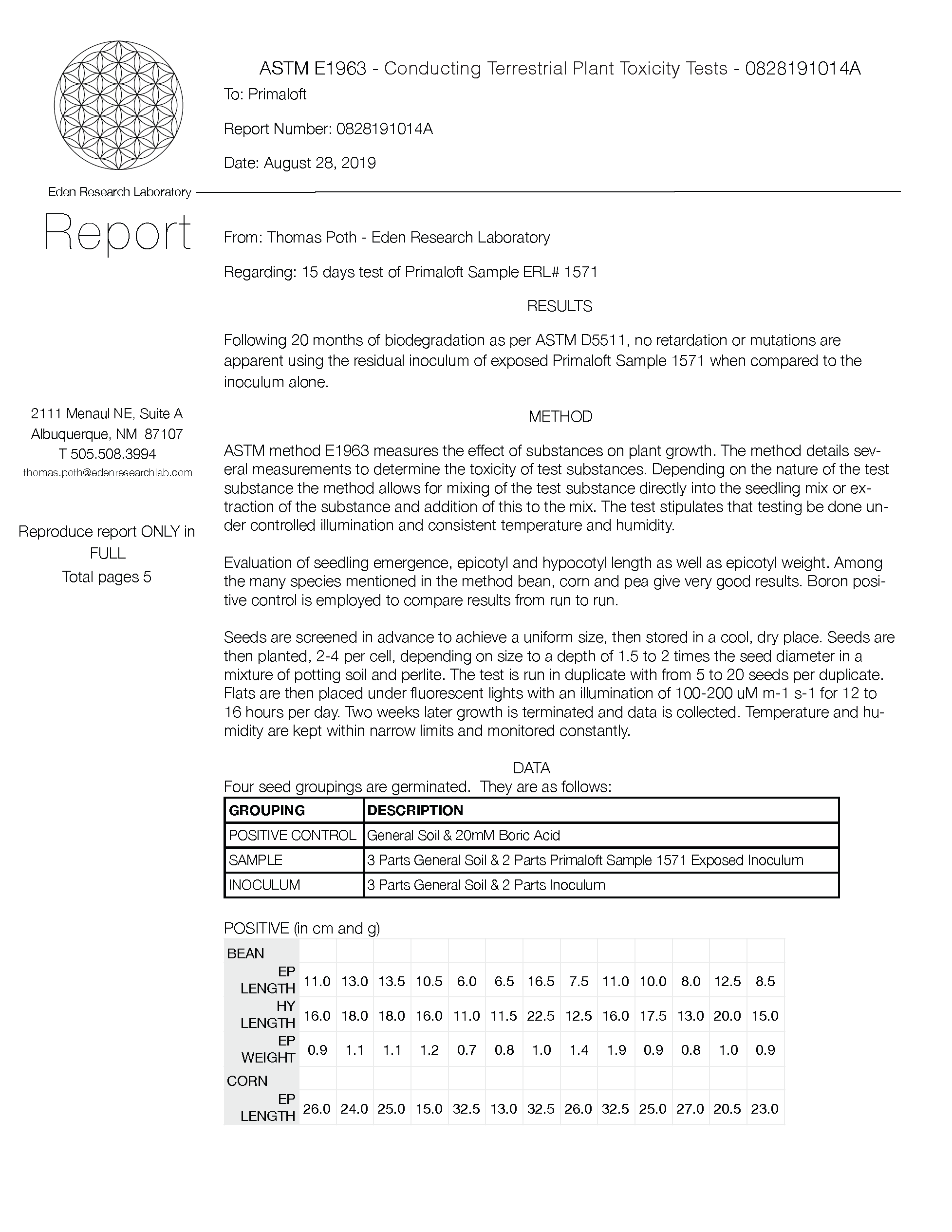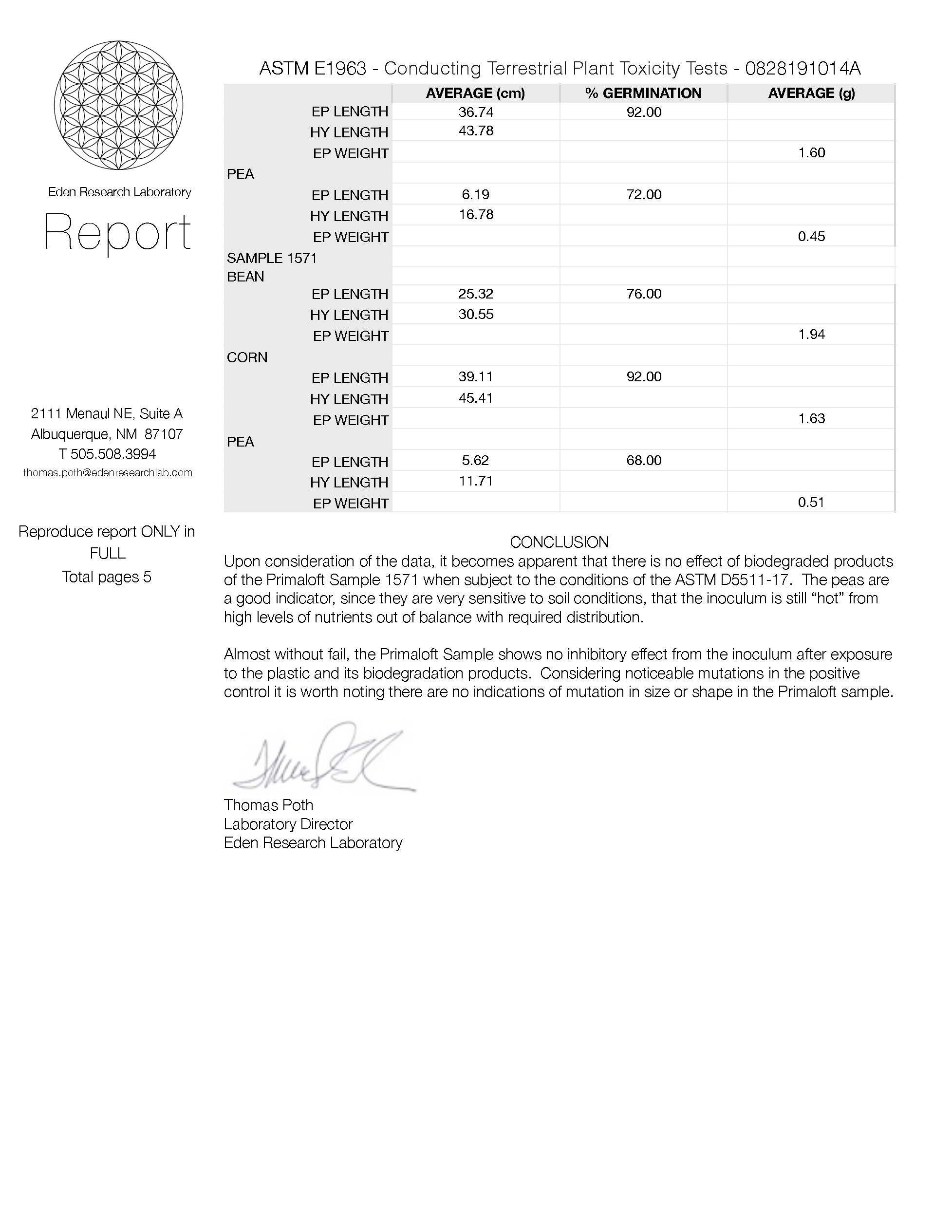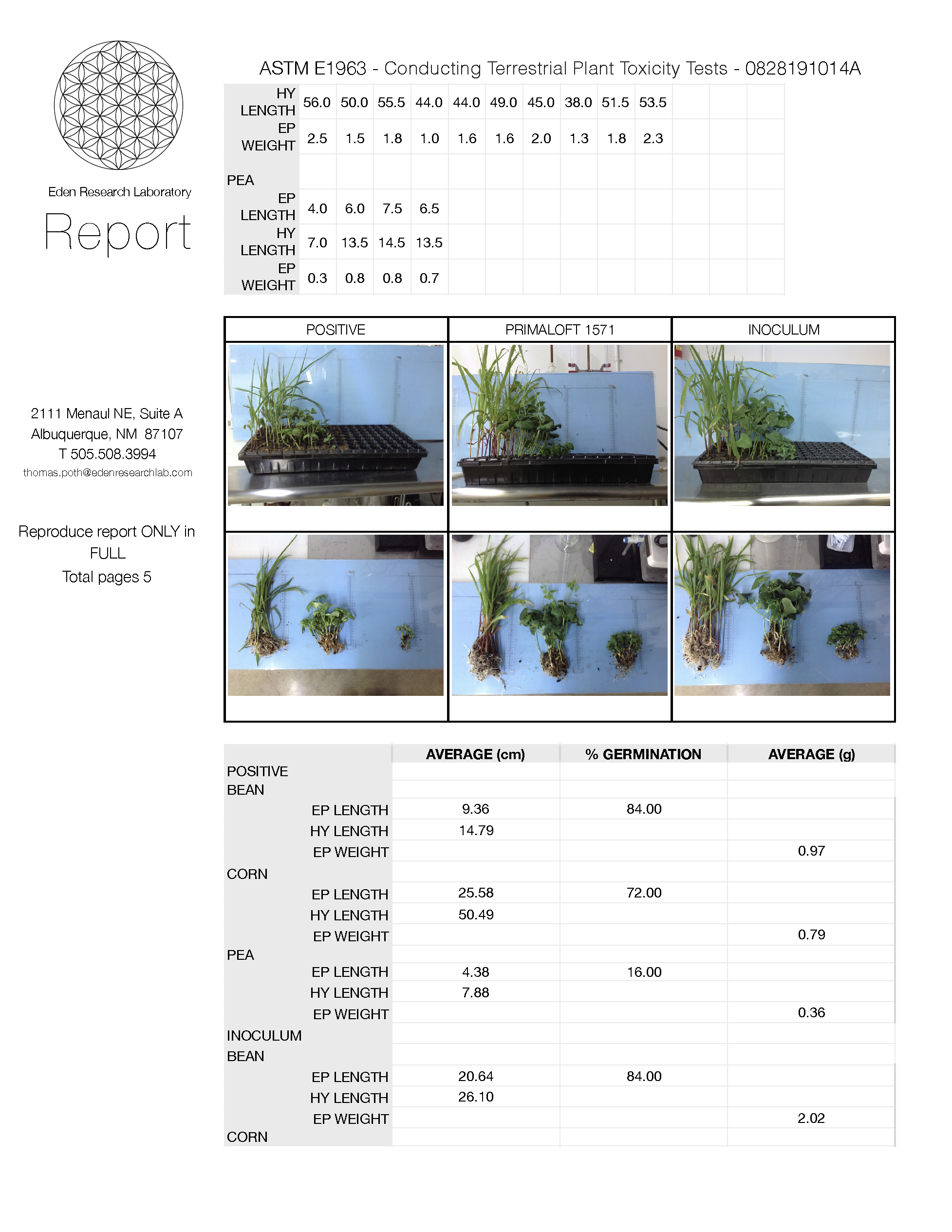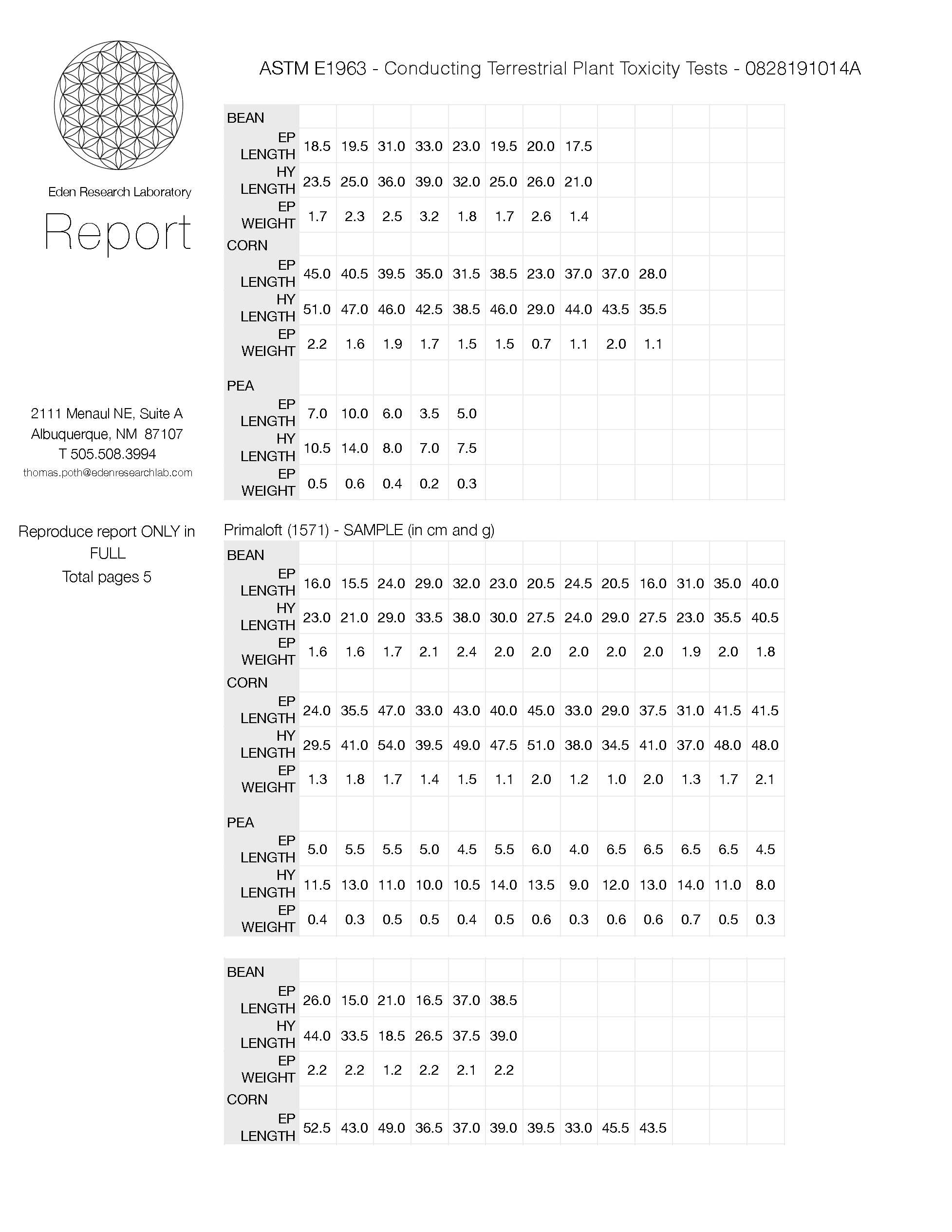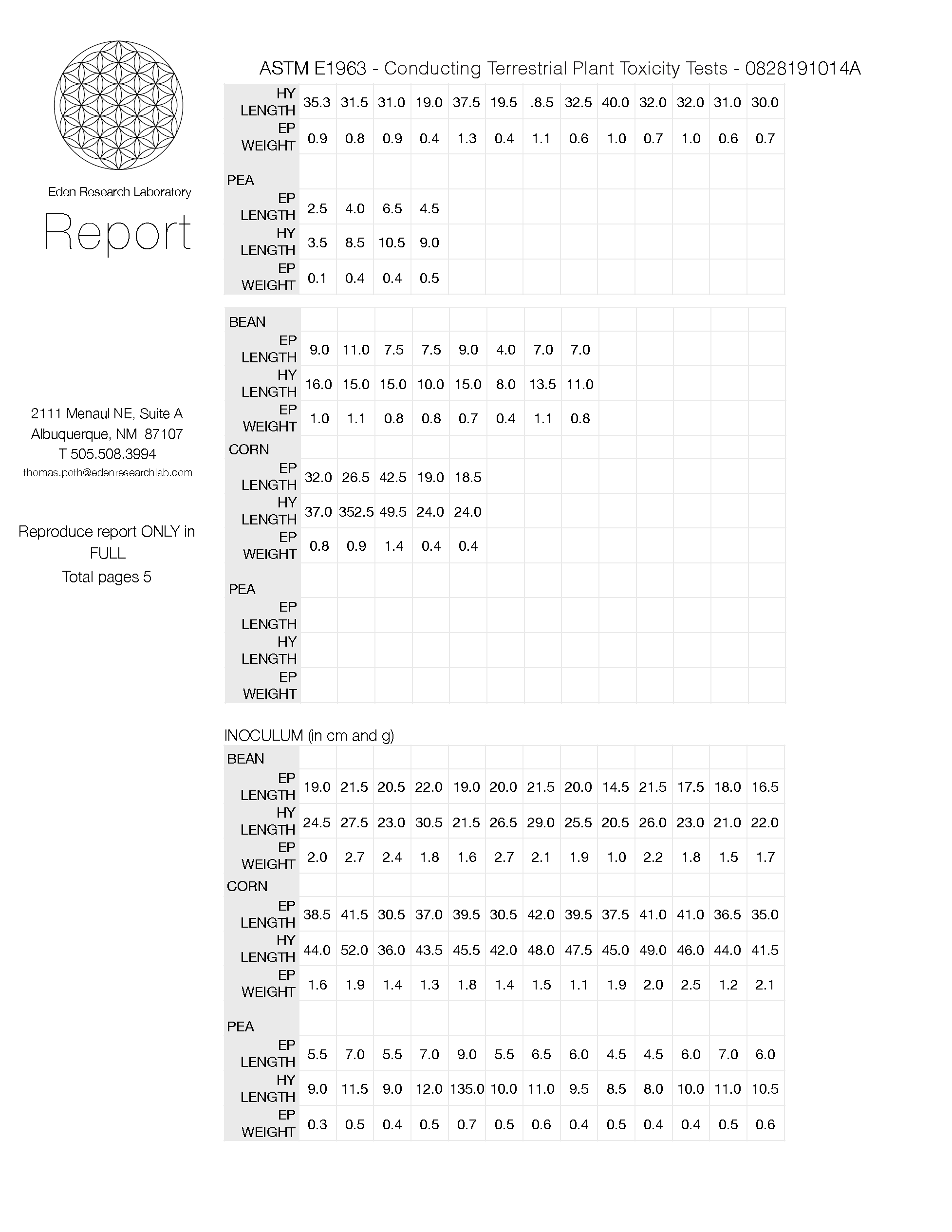Testing & Data
With each technology we develop, we are striving to provide the highest possible performance, while also reducing our impact on the environment. Thoroughly testing every new product and technology is an essential step in the development process. This page will provide a transparent look at the testing and data that supports key sustainable technologies.
PrimaLoft® Bio™
Introduction
The following sections offer a comprehensive summary of the science and testing data that support our PrimaLoft® Bio™ technology. This testing data was conducted by third-party experts and measures the biodegradable properties and environmental impact of PrimaLoft® Bio™.
Biodegradation Testing | ASTM D5511
Standard Test Method for Determining Anaerobic Biodegradation of Plastic Under High-Solids Anaerobic-Digestion Conditions
The test method ASTM D5511 determines the degree and rate of anaerobic biodegradation (without the presence of oxygen) of synthetic plastic materials in a high solids, static inoculum. PrimaLoft® Bio™ polyester achieved 93.7% biodegradation in 646 days under ASTM D5511 conditions.
![Update D5511 - Primaloft (1570-1572) - 0619190620B (646 Days - Final Marketing) (5)[49]_Redacted](https://primaloft.com/wp-content/uploads/2022/07/Update-D5511-Primaloft-1570-1572-0619190620B-646-Days-Final-Marketing-549_Redacted.png)
Biodegradation Testing | ASTM D6691
Standard Test Method for Determining Aerobic Biodegradation of Plastic Materials in the Marine Environment by a Defined Microbial Consortium or Natural Sea Water Inoculum.
The test method ASTM 6691 determines the degree and rate of aerobic biodegradation of synthetic plastic material exposed to marine microorganisms found in natural sea water. PrimaLoft® Bio™ polyester has achieved 86.1% biodegradation through 1563 days under ASTM D6691 conditions.
![Update D6691 - Primaloft (1573-1575) - 0102220111A (1573 Days - Final Marketing) (2)[26]_Redacted](https://primaloft.com/wp-content/uploads/2022/07/Update-D6691-Primaloft-1573-1575-0102220111A-1573-Days-Final-Marketing-226_Redacted.png)
Biodegradation Testing | ASTM D5210
Standard Test Method for Determining the Anaerobic Biodegradation of
Plastic Materials in the Presence of Municipal Sewage Sludge
The test method ASTM D5210 determines the degree and rate of biodegradation of synthetic plastic materials when exposed to anaerobic-digester municipal sewage sludge from a wastewater treatment facility under laboratory conditions. PrimaLoft® Bio™ polyester has achieved 17.8% biodegradation through 241 days under ASTM D5210 conditions.
![Update D5210 - Primaloft (2421) - 0703200708E (241 Days - Final Marketing with Correct Name) (2)[6]_Redacted_Page_1](https://primaloft.com/wp-content/uploads/2022/07/Update-D5210-Primaloft-2421-0703200708E-241-Days-Final-Marketing-with-Correct-Name-26_Redacted_Page_1.png)
![Update D5210 - Primaloft (2421) - 0703200708E (241 Days - Final Marketing with Correct Name) (2)[6]_Redacted_Page_2](https://primaloft.com/wp-content/uploads/2022/07/Update-D5210-Primaloft-2421-0703200708E-241-Days-Final-Marketing-with-Correct-Name-26_Redacted_Page_2.png)
Jordi Labs Internal Method Using Pyrolysis Mass Spectroscopy
The chemical composition of the spent inoculum was tested according to Pyrolysis Gas Chromatography Mass Spectrometry (PYMS) at Jordi Labs. PYMS testing can be used to obtain information about the chemical composition of potential microplastic particles in environmental samples.
No compounds, fragments, monomers, nor additives consistent with PET were found in the spent inoculum.
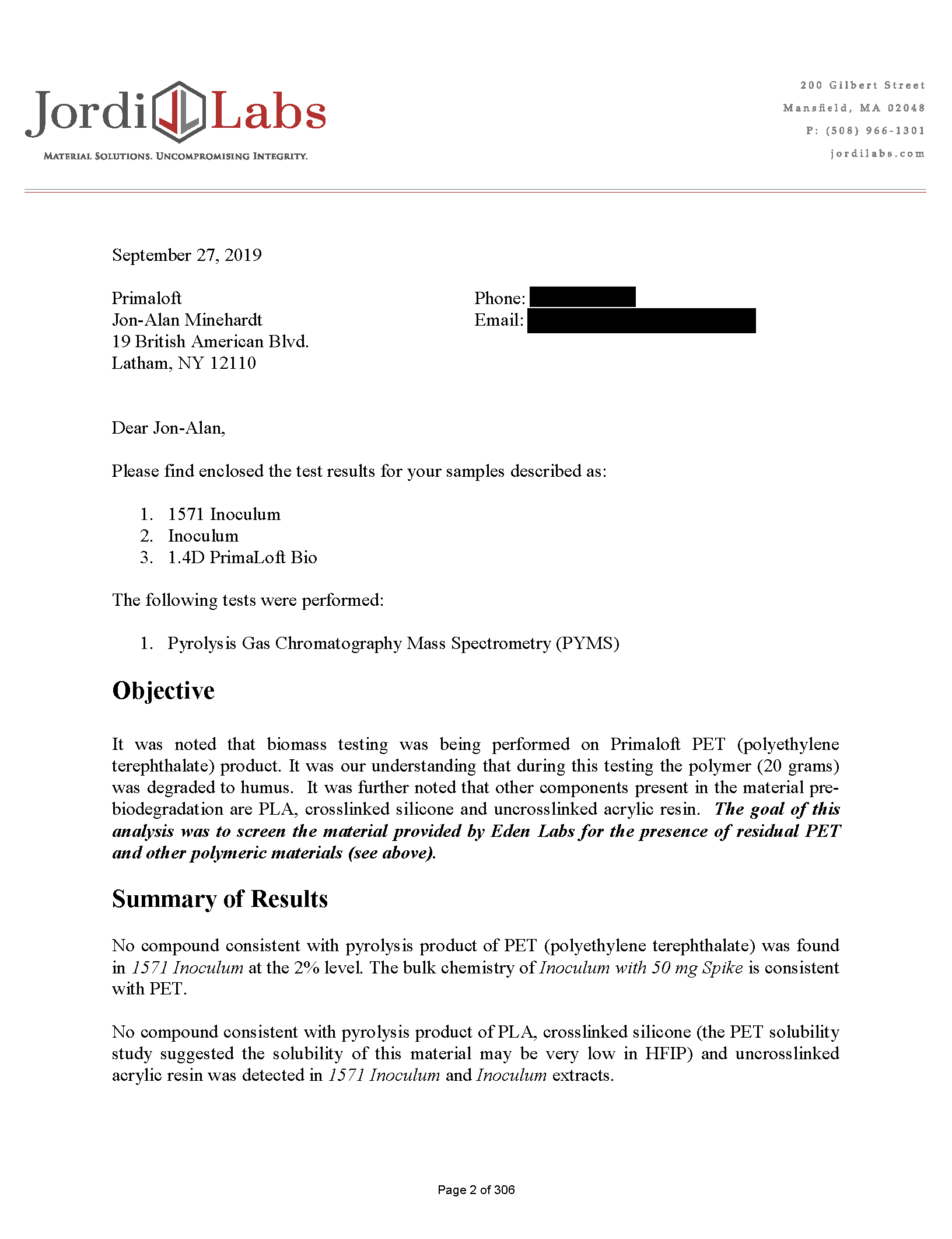
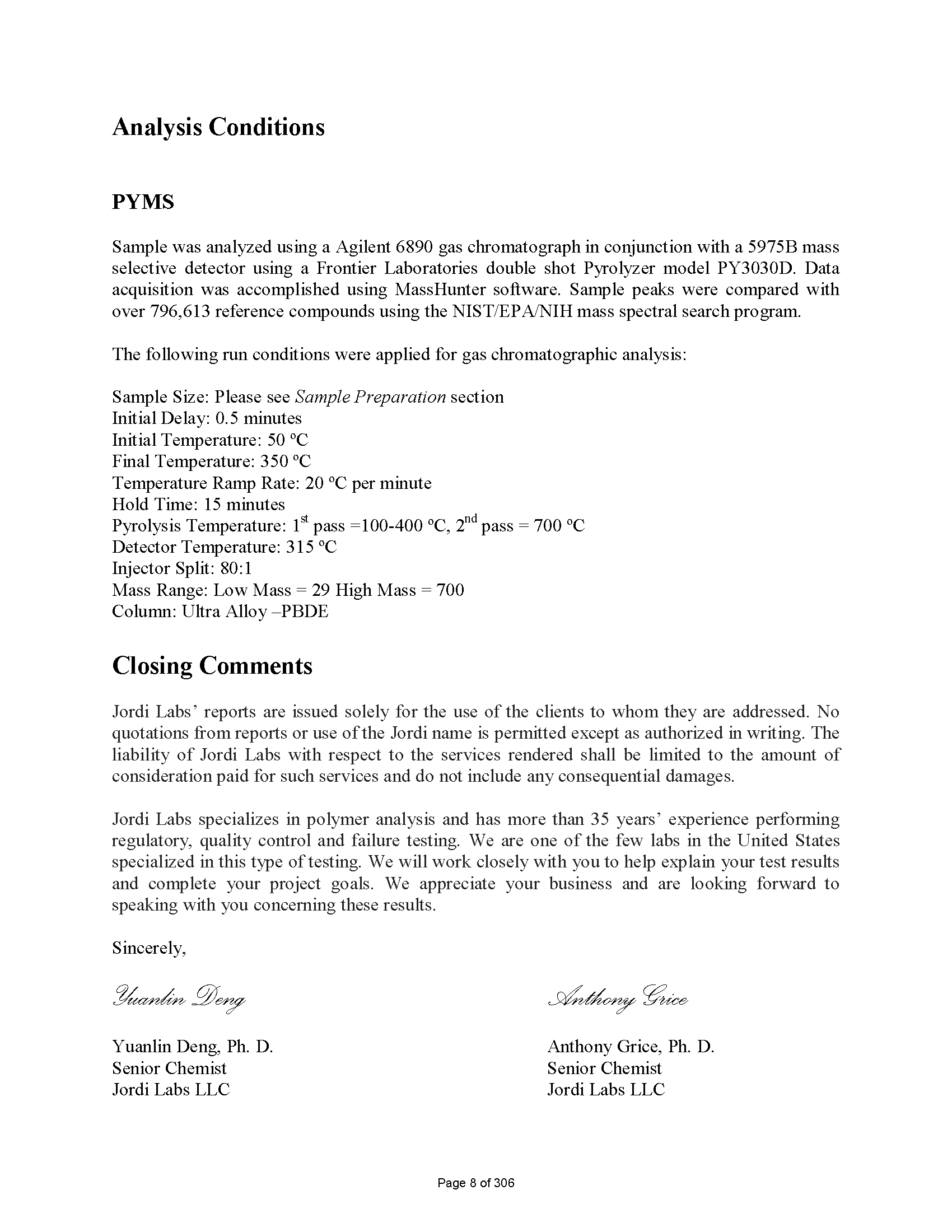
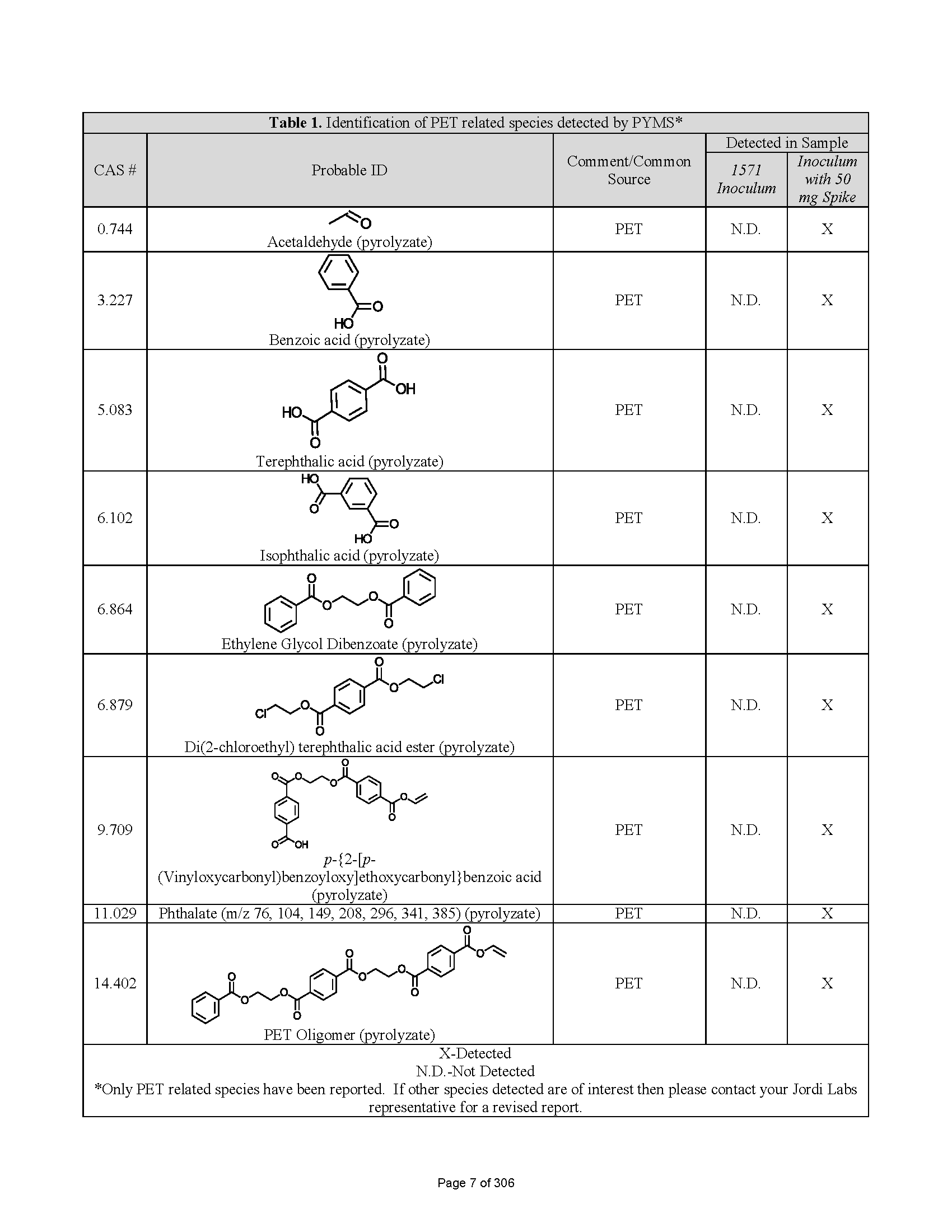
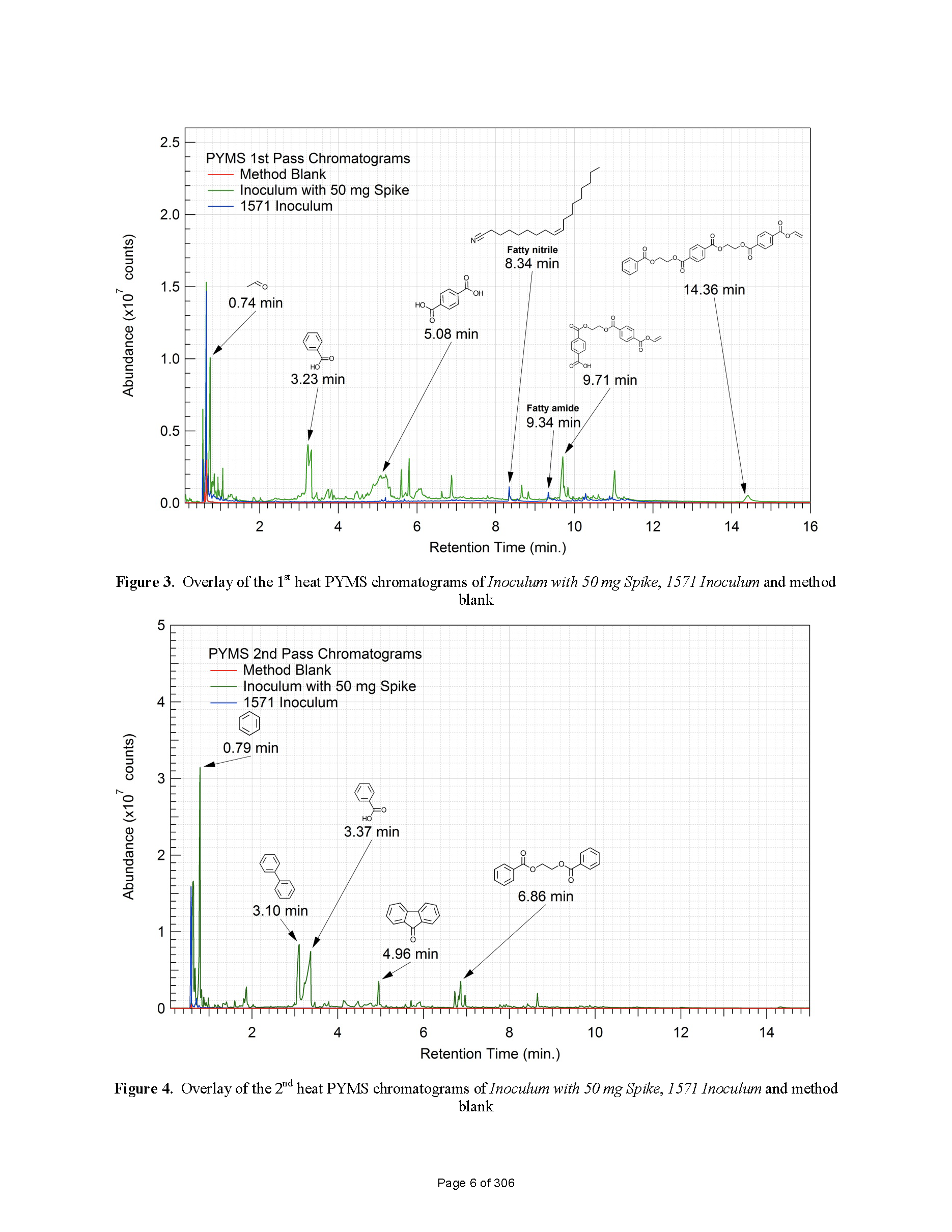
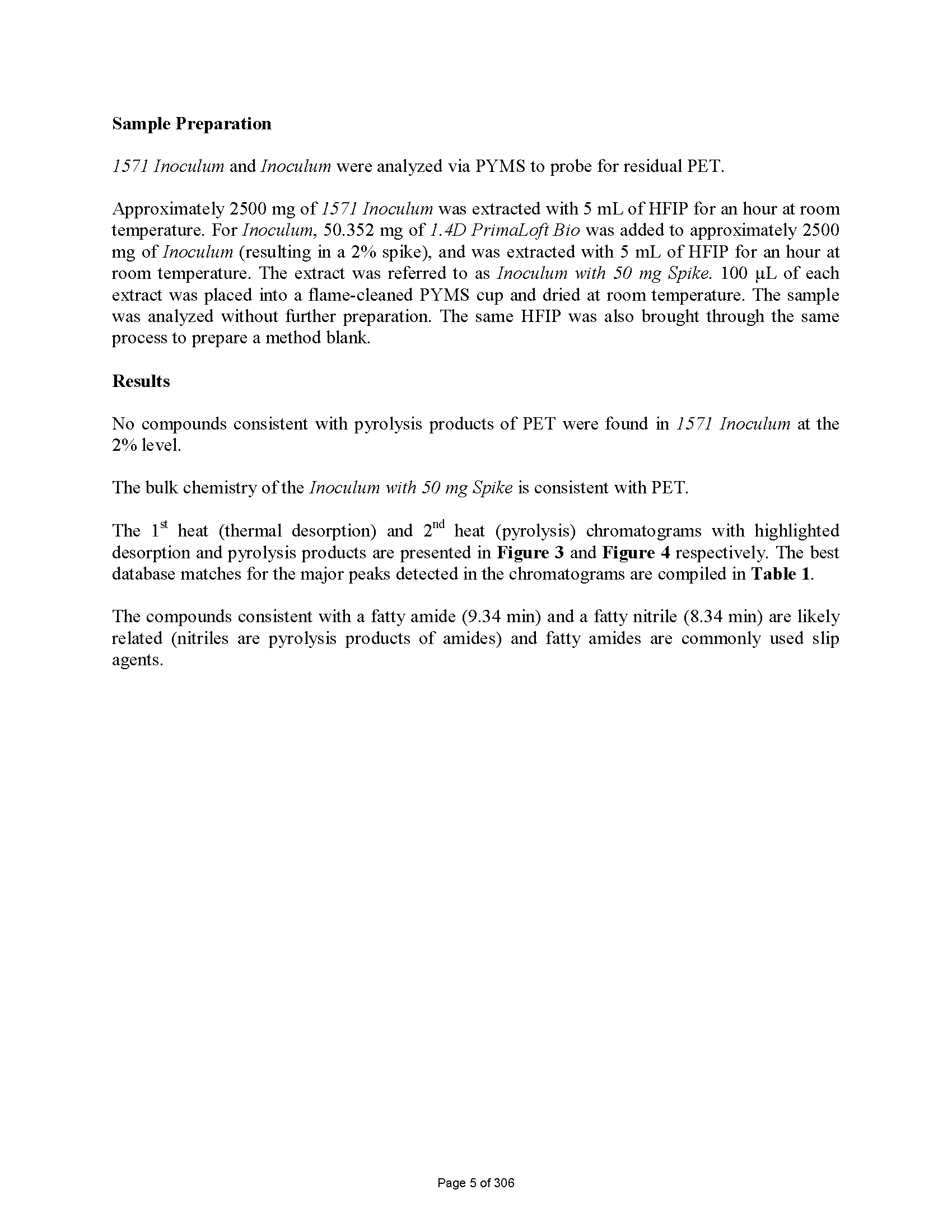
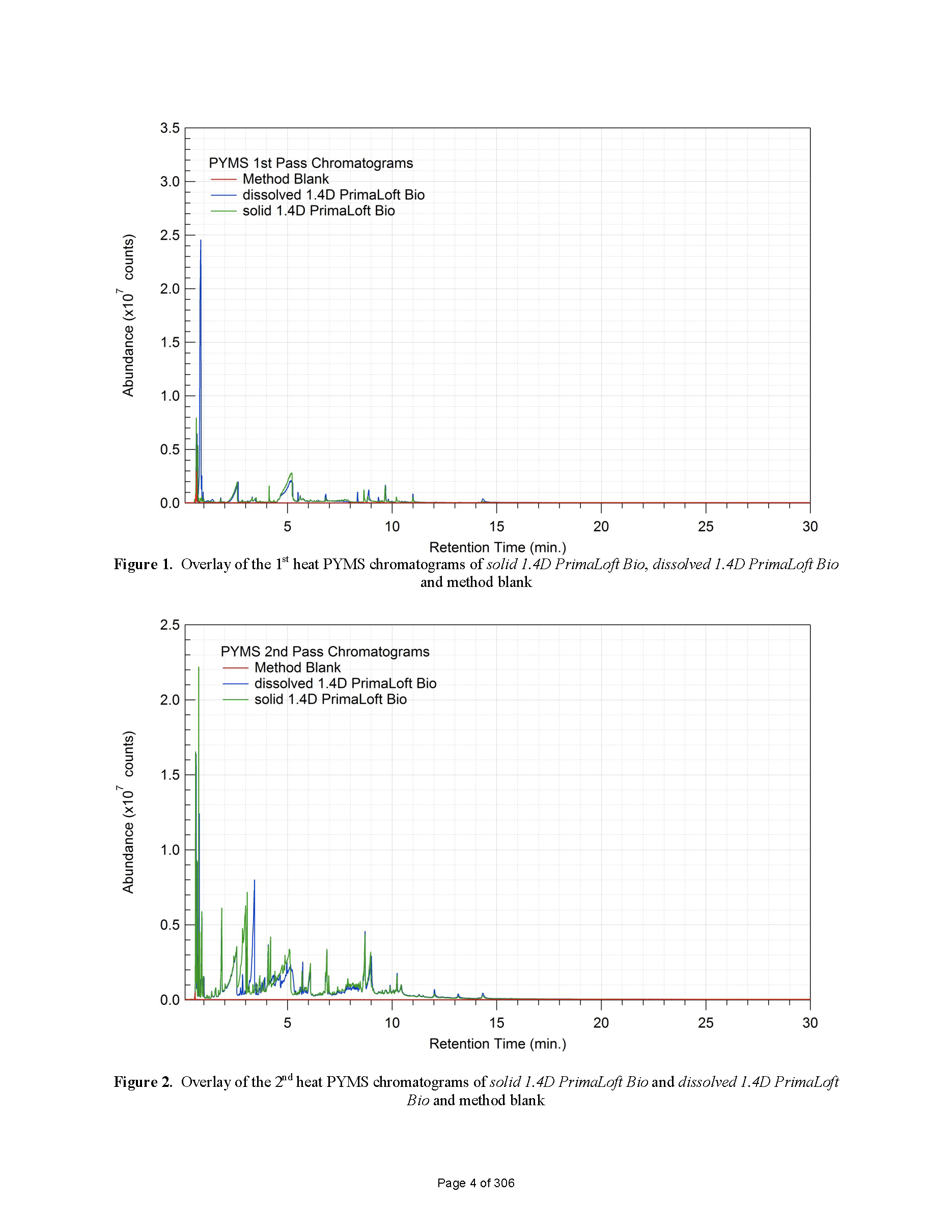
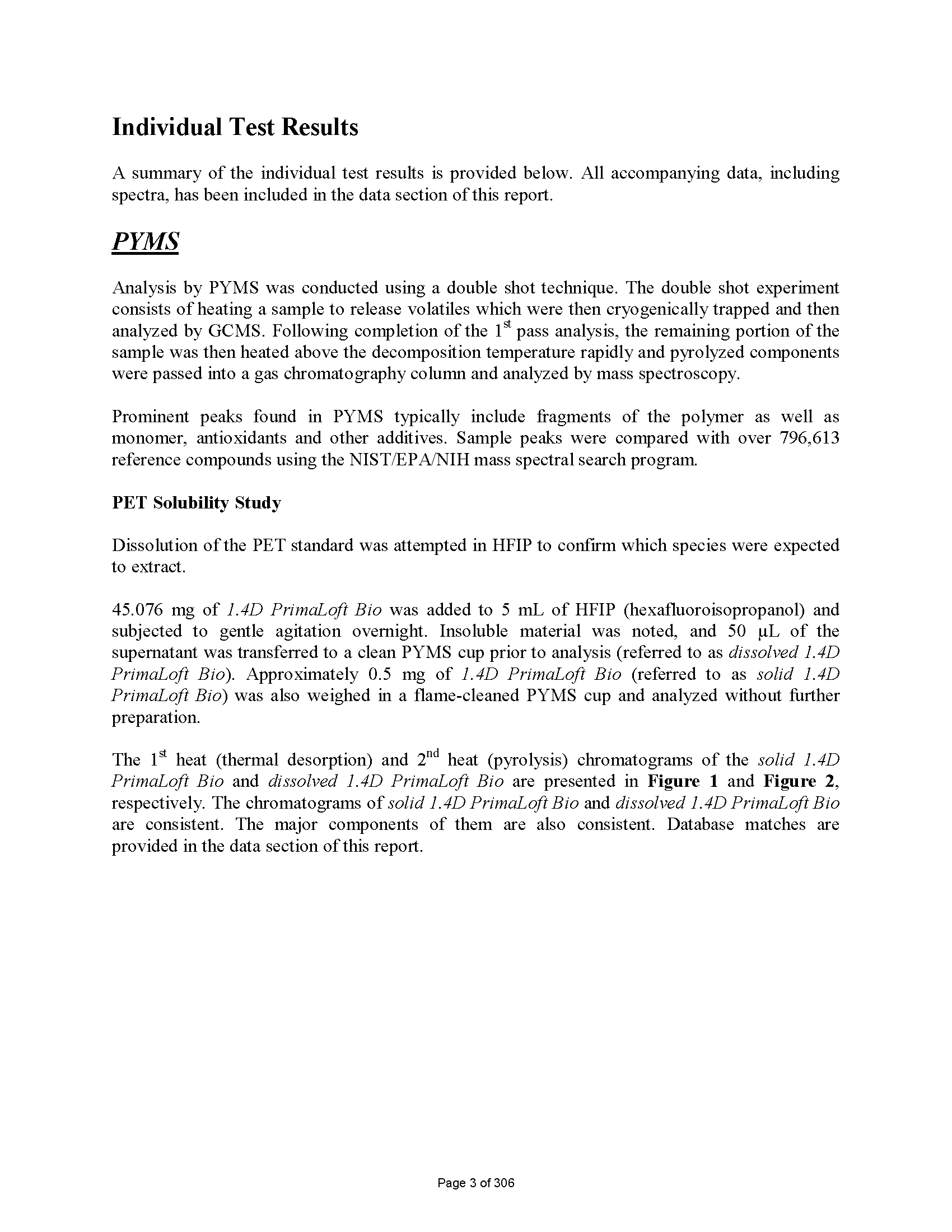
Terrestrial Plant Toxicity Test | ASTM E1963
The germination study analyzed the plant growth of three different seed varieties in a general soil mixture with spent inoculum (exposed to PrimaLoft® Bio™ fibers) compared to a general soil mixture with the blank inoculum (no exposure to PrimaLoft® Bio™ fibers). PrimaLoft® Bio™ polyester has been confirmed using method ASTM E1963, that there is no environmental risk of soil pollution associated with PrimaLoft biodegraded polyester fibers. The spent inoculum demonstrated no toxic pollution that would hinder plant growth.
